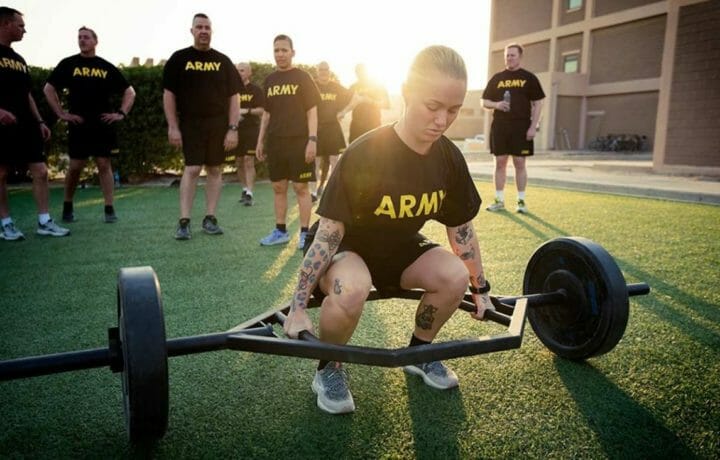While the rollout for the Army Combat Fitness Test (ACFT) has faced many questions, backlash, and setbacks, the rollout plan has moved forward despite delays and congressional input. However, whenever there’s an outcry, it’s helpful to take a step back and assess the why behind the change. And that’s just what TRADOC’s Deputy Commanding General and Chief of Staff Lt. Gen. Ted Martin does with a fun, on-brand Twitter request to not shoot the messenger.
Understanding the Why
According to Lt. Gen. Martin, a fitness test change was needed because the old test did not meet the challenges of the battlefield. In 2021 and the future, the battlefield can quickly be the homeland. So, no matter where soldiers are stationed, it’s clear that combat readiness isn’t just a deployment need. Training for the future needs means not clinging to old methods, he notes.
Lt. Gen. Martin explained that the Army has looked at the issues experienced in Korean War, Vietnam, Iraq, and Afghanistan, and then involved scientists, doctors, and physical therapists in the design and development process of creating a better soldier. Contrary to popular complaint, Lt. Gen. Martin states that the test was not designed around a conference table of generals.
What the test seeks to do is take into consideration things like the body armor and ammunition load soldiers have to carry – which is heavier than years ago. The original fitness test didn’t factor in these components. The changing requirements demand a tougher, more physically fit soldier of the future, which is what the ACFT endeavors to produce.
Independent Study on the ACFT
On October 1, 2020, the ACFT became the official test, but due to pushback and COVID-19 setbacks, scores won’t begin to count for another year. Recent legislation has also called for independent studies outside of the DoD to consider how members stationed or deployed in different regions are at a disadvantage in the test. Independent studies are also set to determine the impact on retention and recruitment. Depending on feedback, the Army can then proceed. The Army has also continued to provide alternate options for those who struggle with the infamous leg tuck. Anytime physical performance and promotion run the risk of being linked, opinions on fairness, equality, and diversity tend to rise to the surface.
Rather than being scared of the data, Lt. Gen. Martin states the Army is working with the data and research that’s available, and moving forward. “Let’s get after the Army Combat Fitness Test,” he says. “We need the data to make informed decisions on the policy that will follow.”
And of course, with his normal humor, Lt. Gen. Martin quotes General Paul E. Funk II’s saying “Don’t freak out. Just work out.”




